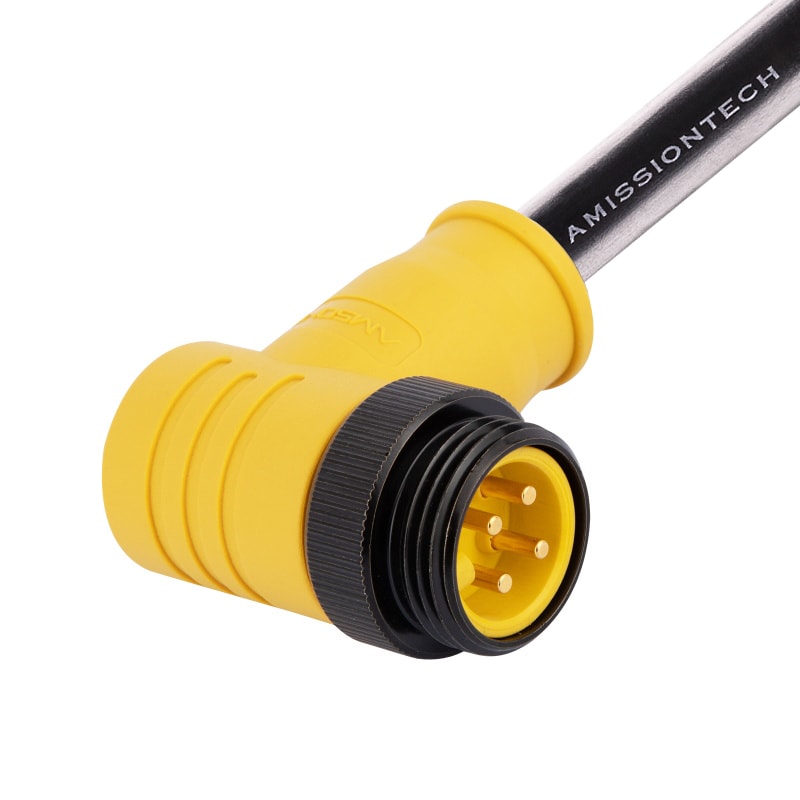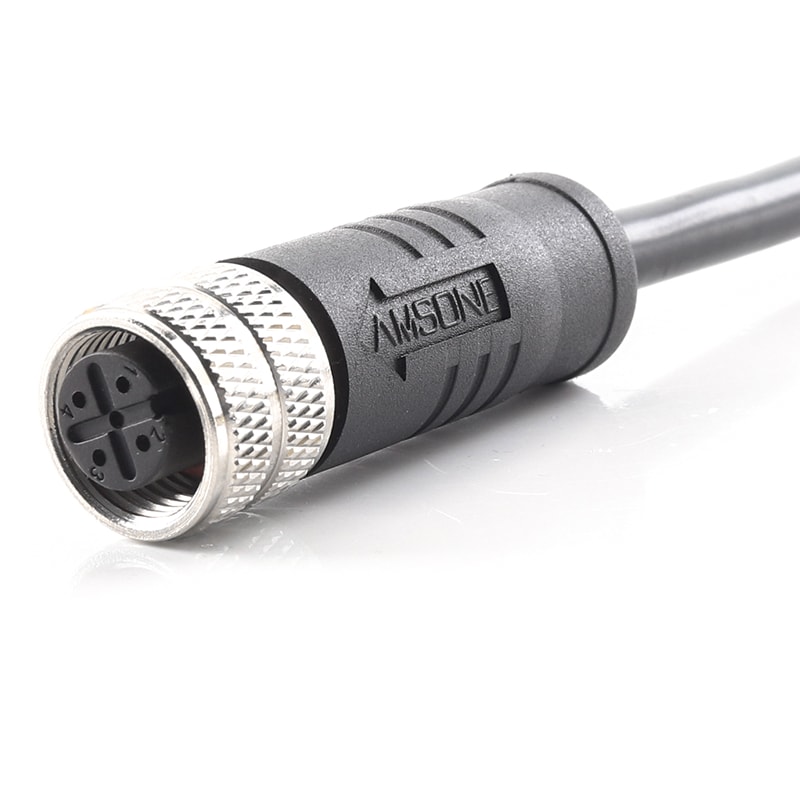DeviceNet is important in today’s industrial automation. It helps devices talk to each other easily, making systems work well. Using DeviceNet tools makes automation more reliable. These tools help controllers, sensors, and devices share information better. This reduces delays and increases work output. Products like Allen-Bradley 1734-ADN or Phoenix Contact DeviceNet Cables make connecting devices simple. Picking the right tools keeps your system ready for future needs.
Understanding the DeviceNet Protocol
What is DeviceNet?
DeviceNet is a system that helps machines work together. It links controllers, sensors, and devices in one network. This system uses CAN (Controller Area Network) to send data reliably. DeviceNet can connect up to 64 devices, including one main controller and 63 others. It uses two ways to share data: master/slave and peer-to-peer. This makes it useful for many tasks. At its core, DeviceNet uses CIP™ to standardize how devices share information.
Why is DeviceNet important for industrial automation?
In factories, machines need to share data without problems. DeviceNet makes sure controllers and devices talk smoothly. For example, in car factories, it prevents delays caused by bad communication. In farming, it helps with big jobs like growing corn. By keeping communication smooth, DeviceNet reduces downtime and boosts productivity in many industries.
Key benefits of using DeviceNet-compatible tools
Using DeviceNet-compatible tools has many benefits. First, they make connecting devices easy without messy wiring. Second, they improve system reliability by using CAN technology for stable communication. Third, they allow you to add more devices as your system grows. Lastly, these tools support both master/slave and peer-to-peer setups, making them flexible for different needs.
Tip: Choose DeviceNet-compatible tools that fit your system to get the most benefits.

Top DeviceNet-Compatible Products
Allen-Bradley 1734-ADN
The Allen-Bradley 1734-ADN is great for managing automation systems. It works as a digital communication module, linking devices to control systems. This tool supports both DeviceNet and ControlNet, making it useful in many setups. Its fast data transfer helps make quick decisions, keeping operations smooth.
A key feature of the 1734-ADN is its advanced diagnostics. These help find and fix problems fast, reducing downtime. It runs on 24V DC, which works with most industrial power sources. It also handles tough conditions, working between -25°C to 70°C and in 5% to 95% humidity.
Here’s a simple look at its features:
Specification | Details |
Communication Protocols | Works with DeviceNet and ControlNet for flexible connections. |
Module Type | Digital module for linking devices to control systems. |
Communication Speed | Fast data transfer for quick decisions and process control. |
Diagnostic Capabilities | Advanced tools for fixing issues and reducing downtime. |
Input Voltage | Runs on 24V DC, fits standard industrial power supplies. |
Environmental Specifications | Works in -25°C to 70°C; Handles 5% to 95% humidity. |
If you need a dependable way to connect devices, the 1734-ADN is a smart pick.
Omron DeviceNet Master Units
Omron DeviceNet Master Units are strong tools for managing DeviceNet networks. They act as a hub, letting you control and monitor many devices easily. These units simplify hard tasks and work well with other Omron products.
One big benefit is their easy setup. You can install them quickly, saving time. They support many devices, making them useful for different industries. Whether in factories, packaging, or material handling, they ensure smooth communication.
Omron designs these units to be reliable, even in tough conditions. Their DeviceNet compatibility ensures stable communication, helping improve automation systems.
Phoenix Contact DeviceNet Cables
Phoenix Contact DeviceNet Cables are key for building strong DeviceNet networks. These cables handle tough industrial needs, keeping device communication steady. They come in different lengths and types, so you can design your network easily.
The cables have strong shielding to block electrical interference. This keeps data accurate and smooth. They are also built to last, even in rough environments.
Using these cables makes connecting devices simple. Their plug-and-play design allows quick and easy setup. To keep your DeviceNet network reliable, these cables are a must.
Tip: Pick cables that match your devices to avoid problems.
ICP DAS DeviceNet Modules
ICP DAS DeviceNet Modules are helpful tools for improving automation systems. These modules let you link different devices to a DeviceNet network. This ensures smooth communication and better performance. They are great for adding sensors, actuators, or controllers to your setup.
A key feature of these modules is their flexibility. You can use them in many areas, like factories or building systems. They support various I/O setups, making it easy to adjust your network. Their small size also saves space, which is important in tight areas.
Here are some main features of ICP DAS DeviceNet Modules:
Wide Compatibility: They work well with most DeviceNet-compatible tools, making setup simple.
High Reliability: Built tough, they work even in extreme heat or humidity.
Easy Configuration: The simple interface helps you set up quickly and easily.
Scalability: Add more modules as your system grows without trouble.
Pro Tip: Think about how many devices you’ll connect and your workspace conditions. This helps you pick the right module for your needs.
Anybus Communicator
The Anybus Communicator is a strong tool for connecting devices in automation. It links older devices to a DeviceNet network, helping modernize old equipment. Its sturdy design and reliable performance ensure smooth data sharing.
One big advantage is its support for many protocols. This lets you connect devices using different standards, like PROFIBUS or Modbus, to a DeviceNet network. This creates a single system that works well together.
Here are some examples of how the Anybus Communicator improves systems:
Factory Automation: A production line with Siemens PLCs added new machines using the Anybus Communicator. This improved work speed and cut costs by ensuring smooth device communication.
Old Machine Upgrade: Legacy machines were updated to work with Siemens PLCs using the Anybus Communicator. This saved money by avoiding the need to replace old equipment.
UPS System Connection: Vertiv’s UPS system was linked to PROFIBUS PLCs using the Anybus Communicator. This showed its ability to solve communication issues effectively.
The Anybus Communicator is perfect for projects needing to connect devices with different protocols. Its flexibility makes it a great tool for any automation system.
Comparing the Top Products
Features and specifications comparison
Each DeviceNet-compatible product has special features for different automation tasks. The Allen-Bradley 1734-ADN works with both DeviceNet and ControlNet. It has advanced diagnostics and handles tough conditions well. Omron DeviceNet Master Units manage many devices easily and work smoothly with Omron products. Phoenix Contact DeviceNet Cables are strong and block interference, keeping communication steady in rough areas. ICP DAS DeviceNet Modules are small and can grow with your network, making them great for expanding systems. The Anybus Communicator connects old devices to modern systems and supports many protocols for flexibility.
Pros and cons of each product
Allen-Bradley 1734-ADN
Pros: Strong communication, advanced diagnostics, and works with multiple networks.
Cons: Costs more than simpler options.
Omron DeviceNet Master Units
Pros: Quick to set up, works well with Omron systems, and very reliable.
Cons: Doesn’t work as well with non-Omron devices.
Phoenix Contact DeviceNet Cables
Pros: Tough, blocks interference, and comes in different lengths.
Cons: Only cables, so you’ll need extra parts for a full setup.
ICP DAS DeviceNet Modules
Pros: Small, easy to expand, and works with many setups.
Cons: Needs extra setup for more complex systems.
Anybus Communicator
Pros: Works with many protocols, updates old devices, and performs well.
Cons: Can be tricky to set up for beginners.
Best use cases for each product
Allen-Bradley 1734-ADN: Best for big automation systems needing fast data and diagnostics.
Omron DeviceNet Master Units: Great for factories using Omron devices, like in packaging.
Phoenix Contact DeviceNet Cables: Good for networks in areas with lots of electrical noise.
ICP DAS DeviceNet Modules: Perfect for growing networks in small spaces, like buildings.
Anybus Communicator: Ideal for linking old devices to modern DeviceNet systems or connecting devices with different protocols.
Think about your system’s needs, like compatibility and space, before picking a product.
Tips for Picking the Best DeviceNet-Compatible Product
Understanding your system’s needs
First, figure out what your system needs. Think about daily tasks it handles. Do you need to link many devices or just a few? Look at the types of devices, like sensors or controllers. If your system is complex, pick tools with advanced features. For simple systems, basic tools might be enough. Knowing your needs helps you pick the right tools without making things harder.
Checking compatibility with your setup
Before buying, make sure the product works with your system. DeviceNet-compatible tools should connect easily to your devices and controllers. Check the communication protocol your system uses. For example, if it uses DeviceNet, ensure the product supports it. Also, check physical connections like cables and power needs. Compatibility keeps your system running smoothly.
Thinking about cost and future growth
Your budget matters when choosing tools. Compare prices and pick one that gives good value. Don’t just look at the price now. Think about how reliable and easy it will be to maintain later. Also, consider if you’ll expand your system. Choose tools that can grow with your needs. Modular or flexible designs are great for future changes.
DeviceNet tools are important for today’s automation systems. They help devices talk better and work faster. Tools like the Allen-Bradley 1734-ADN and Anybus Communicator solve different problems. DeviceNet uses strong CAN technology, which works well for old and small systems. Over 70% of industries now use fieldbus devices, showing their importance. Using these tools can make your system better and keep you ahead in automation.
Partner with Amissiontech for Smarter Industrial Connectivity
At Amissiontech, we specialize in custom industrial connectors and cable harness solutions designed for reliable communication in automation systems. Whether you’re upgrading existing equipment or building new networks, our engineering team can help you integrate DeviceNet-compatible solutions tailored to your needs.
FAQ
1. What do DeviceNet-compatible tools do?
DeviceNet-compatible tools help devices share data in automation systems. They make connections easier, improve system stability, and allow for growth. These tools help controllers and sensors work together better, boosting efficiency.
2. Can older systems use DeviceNet-compatible tools?
Yes, many tools, like the Anybus Communicator, can link old devices to new networks. This lets you upgrade without replacing older equipment, saving money and effort.
3. How do I pick the right DeviceNet-compatible tool?
First, figure out what your system needs. Count your devices, check communication protocols, and think about the environment. Then, compare products for features, compatibility, and room to grow.
4. Are DeviceNet cables special?
Yes, DeviceNet cables are made for tough industrial use. They block interference and keep communication steady. These cables are built to last and meet strict standards for hard conditions.
5. Do you need training to use DeviceNet-compatible tools?
Most tools are easy to use and come with instructions. Some advanced ones, like the Anybus Communicator, might need basic technical skills to set up. Companies often provide guides or help if needed.

 EN
EN DE
DE JP
JP ES
ES SE
SE FR
FR IT
IT CN
CN 한국어
한국어 ภาษาไทย
ภาษาไทย بالعربية
بالعربية Nederlands
Nederlands Türkçe
Türkçe Język polski
Język polski Tiếng Việt
Tiếng Việt Zulu
Zulu Bahasa Malay
Bahasa Malay

